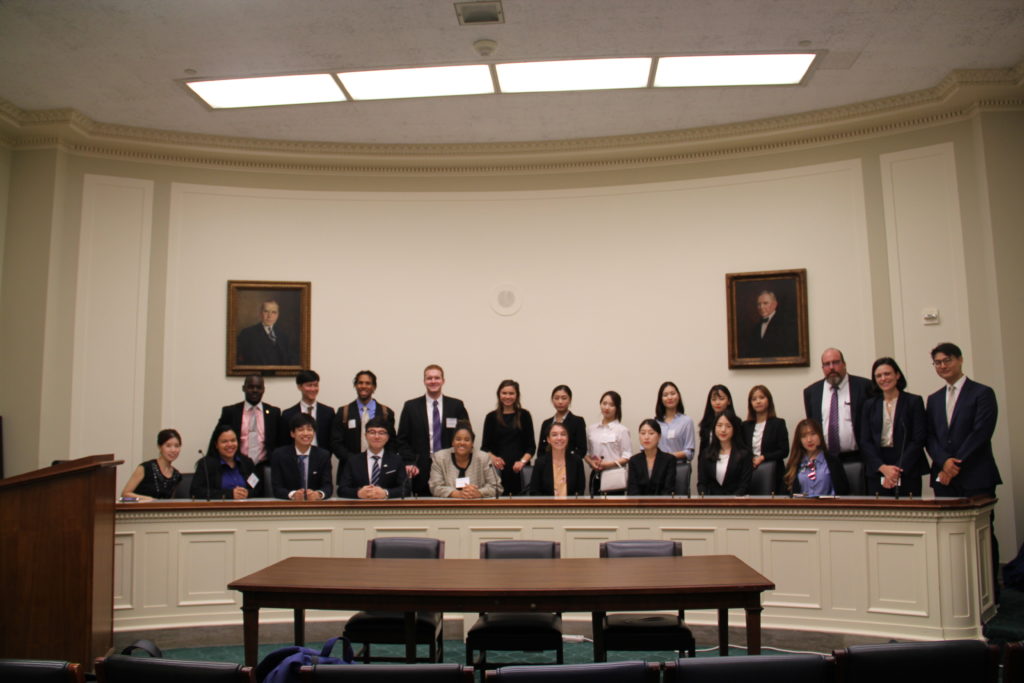Over the course of two days, I had the opportunity to accompany the delegation from the 2017 U.S. Congress – Republic of Korea National Assembly Exchange Program as they made stops around Washington, DC.
One of the delegates’ engagements that impressed me the most was their meeting with Dr. Victor Cha, a senior advisor and holder of the Korea Chair at the Center for Strategic and International Studies. Of course, much of the discussion at the meeting revolved around relations with North Korea, but Dr. Cha did have time to share an anecdote from his time as an undergraduate student at Columbia: he was the president of the Asian student association, while Barack Obama was the president of the African-American student association – the two of them used to argue over the fact that the African-American student association received more funding from the university!

Sprinkled in with engagements such as the meeting with Dr. Cha, which are tailored to the delegation and more academic, are tours and sight-seeing in Washington, DC From these, what I learned in the Library of Congress has truly stuck with me. When I visited the library before, I admired the bright paintings that adorn the ceilings, the marble work, and all of the other details that make the building so splendid, but I merely looked at them all, thought that they were “nice,” and went on my way. So, when I went on a tour with the Korea delegation, I was so taken aback at how much there was to learn about the building and its art work, at how it had all gone over my head before. The paintings of beautiful goddesses that represent mathematics, the sciences, and the fine arts… the statues of Beethoven, Plato, Newton, and other great minds that look out over the main reading room…the constant references to the world’s great civilizations and the contributions that they have made to human progress… the whole building is a temple to learning, and although it was just a simple tour that anyone from the public could experience, it was truly moving to me.

So, here lies the strength of the Korea program, if not all of Meridian’s programs: the marriage between meetings that focus on a specific issue area, such as the one with Dr. Cha, and the chance to experience Washington’s sight-seeing staples, such as the Library of Congress. Even these staples, perhaps banal to the Washington, DC native, are so important to the groups who come through this city and, as I found at least, can be just as transformative as anything else.
Written by Thomas Reily, Programs Intern with the GlobalConnect Division.
















